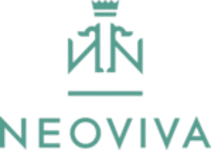A CEO with deep roots in psychology and healthcare
Ask anyone at NEOVIVA who keeps the business running smoothly, and they’ll point straight to Fenina Erpf. Oliver Neubert, the clinic’s founder, doesn’t hesitate. “Fenina is the boss,” he says when people from outside the organisation assume he’s the CEO. She is unperturbed by the mistaken assumption. Recognition isn’t what drives her.
Spend a little time with her, and you notice she leads in a way that is hard to define. There’s a precision to the way she thinks, a calm energy that steadies those around her. Her sharp mind is obvious, carried by a self-belief so understated, it almost slips past you, until you realise everyone else is listening.
She doesn’t grandstand. She doesn’t push. She notices the small things others overlook and quietly puts them right. Nothing showy, no fuss. Just quiet competence, high standards, and a care for people, balanced by the strength to hold others accountable.
These are the threads that shape everything she does.
In a team of strong characters, she brings order without stifling creativity, calm without losing pace. She likes things to run logically, but she’s anything but rigid. With a gift for ideation, she takes complex ideas and turns them into practical solutions, always a step ahead.
From advertising to psychology
Before NEOVIVA, Fenina’s life looked very different. She spent years in the world of advertising agencies, thriving on the buzz of deadlines and fast-turnaround campaigns. “Every day was different,” she recalls. “There was always a new briefing, a campaign to pull together overnight, a shoot to organise. I loved the energy.”
But over time, that excitement wore thin. Campaigns that took weeks of effort vanished almost instantly; a thirty-second TV slot, a fleeting magazine spread. “It felt like working into the dustbin,” she admits. The glamour couldn’t disguise the emptiness creeping in; purpose was missing.
So, at thirty, she did something most people wouldn’t dare: she walked away from an established career and went to university. Psychology had always fascinated her, not the clinical side, but the bigger questions of what drives people. She took a bachelor’s degree, then a master’s in psychology at the University of Zurich, later followed by an MAS in Managed Healthcare, deliberately choosing a path that connected her existing skills with something more meaningful.
Around that time, a familiar face resurfaced. She’d once known Oliver Neubert through the advertising world, though neither of them remembers exactly how. Years later, she spotted his profile on LinkedIn. She found he had made a similar switch from media production into psychology and addiction treatment. They reconnected, and Oliver invited her to join him at a day clinic for addiction, which he was now running.
At first, she hesitated. Like many, she carried the stereotype of addiction: people on the streets, homeless, visibly unwell. The idea of working in that world felt daunting. But the clinic was different. It was for people holding down jobs, raising families, outwardly “functioning” yet struggling privately with alcohol or drugs. The nuance that addiction could look like your neighbour, colleague, or friend intrigued her. She said yes. And in that yes, the path to NEOVIVA began.
Between two worlds: Finding strength in the in-between
Fenina’s ability to connect across cultures didn’t come from textbooks. It was written into her life from the start. Her father is Swiss and an atheist, her mother Indonesian and Muslim. At the age of five, she moved with her family from Asia to a small, conservative Swiss village. Overnight, she became the only Asian child in the entire community.
It left her wondering where she belonged. “In my teenage years, I felt pulled in two directions,” she says. “Am I Swiss or Indonesian? Atheist, or Muslim? I thought I had to choose.” That tug-of-war continued until, after her psychology studies, she had the chance to live in Jakarta. Immersed in her mother’s culture, she realised something simple but life-changing: she didn’t have to choose.
“I discovered it doesn’t need to be one or the other.” That realisation was liberating. It became a thread that runs through her approach to life and her work.
At NEOVIVA, many clients arrive from cultures where family, religion, or community play a far bigger role than in Western Europe. Some come from Middle Eastern countries, are educated abroad, but return home to conservative traditions. Fenina understands the tension instinctively. “I know exactly how it feels if two sides pull on you,” she says. “That’s why I have so much empathy for our clients.”
She recalls one young client from the Middle East, who was educated in the Western world. After his education, he was expected to return home and step into a traditional family role, upholding the cultural customs. “He couldn’t escape the weight of expectation,” Fenina explains. “As the eldest son, he was responsible for keeping the family traditions alive. It wasn’t a case of us telling him to resist or be independent or assertive. Our role was to respect his culture and help him find strategies to unite his two sets of experiences.”
For Fenina, this case resonated, though she admits her own experience of being pulled in two directions was never as intense as for him. “We recognise and are deeply respectful of the challenges,” she says. “We can only offer strategies. We never impose Western ideas or modern values.”
For her, diversity isn’t a slogan. It’s a lived experience. And it’s one reason she insists on a team culture rooted in respect: people aren’t labels or categories, they’re human beings first.
Leading with lightness
Running an addiction clinic is serious work, and sometimes, it’s literally a matter of life and death. Yet walk into a team meeting at NEOVIVA, and you’re just as likely to hear laughter as strategy. That balance is deliberate, and it comes from Fenina.
She calls her approach a “soft leadership style.” She isn’t the kind of boss who commands attention the moment she enters a room. “I’m not the silverback,” she laughs. Instead, she leads with authenticity, encouragement, and a lightness born from her humour. “Our business is very serious,” she explains, “but we need to laugh together sometimes. Otherwise, recovery feels like a sad place. And who would want to go there? Recovery has to be aspirational. It has to feel joyful at times.”
That philosophy shapes how she sees her team. Rather than dwelling on weakness, she looks for strengths. “You don’t go far by focusing on what people can’t do,” she says. “You build on what they’re good at.”
It’s a perspective born of her own experience as an “all-rounder” who never quite fitted into one box. Now, she’s in a role that suits her broad skillset perfectly. The business needs someone who can connect the dots, spot the gaps, and bring it all together.
Humility, though, is part of her makeup. Ask her to list her strengths, and she hesitates. She admits to impatience, high standards that sometimes feel “just normal.” Only when she steps back does she realise that what feels instinctive to her doesn’t come naturally to others. “It’s like an aha moment,” she says. “Oh, I really am good at this.” But she won’t shout about it.
Her focus always returns to the clients and the team. Together with Oliver, she’s created a culture where people feel at home. Staff describe it as a “work family,” and while she knows families aren’t always perfect, she takes pride in the fact that people want to come to work each day. That energy, she believes, flows directly into the care clients receive.
The fun side: Bentley, books and balance
Away from strategy meetings and clinic schedules, Fenina’s life has a gentler rhythm. Her mornings begin early, around five, with some morning stretching and a walk with her dog, Bentley. “I like having time to myself before I start the day. Walking the dog gives me that space and forces me into a structure. Otherwise, I might not be outside that early, especially in the winter,” she says, laughing. As it happens, the daily routine grounds her, a quiet counterpoint to the pace and intensity of her work.
Books are her real indulgence. A self-confessed “series binger,” she happily loses hours to crime novels and long-running story arcs. But not just any crime novels. She prefers writers like Louise Penny, whose Inspector Gamache is thoughtful and family-oriented – a refreshing change from the brooding stereotypes who dominate the genre. “It always seems to be the same story with those inspectors,” she says. “Depressed, divorced, battling demons. Gamache is different. He has an intact family. He’s not brutal.”
“I gravitate towards feel-good stories, whether in books or on television. They help me recharge, offering balance in a world that often feels heavy with negativity. I don’t think it’s healthy to be entertained by defeatism or conflict. Of course, I enjoy a good thriller or drama, but only when it leaves me with a sense of resolution or meaning.”
Stories set in different cultures appeal to her most. Chinese detectives, novels placed in far-off places, films that open a window into another world. “I like something a bit exotic, something that takes me out of the familiar,” she explains. “Maybe that’s where my Asian side comes in.”
It’s escapism, she admits, but a healthy one. “Everyone has little things they do to relieve stress. For me, it’s stories or a good TV series. For someone else, it might be chocolate, exercise, or scrolling on social media. When you start to look closely, you realise that we all have patterns of behaviour that aren’t so different from the people who come to us for addiction treatment.”
And then there’s her humour. She downplays it as nothing special, but colleagues see it as one of her greatest assets. She has a way of making people feel at ease, of lightening heavy moments with a quick comment or a smile. “People tell me it’s one of my strengths – that I make people laugh,” she says, almost apologetically. But that ability to bring warmth into a serious setting is precisely what makes her leadership style work.
Looking ahead
Ask Fenina about the future, and she won’t mention legacy or recognition. That’s not her style. What she wants is simple: for NEOVIVA to be known for outstanding treatment that gives people their lives back. It’s about the brand and the outcomes for the clients, not her. “If someone is asking where to go for help with addiction, I want NEOVIVA to be the name that comes to mind,” she says. Not for luxury trimmings or glossy branding, but because the care is effective, evidence-based, and delivered by passionate people who truly believe in it.
She also wants NEOVIVA to stay a place where people like to work. That might sound straightforward, but in a field where staff give so much of themselves, it matters deeply. “If our team doesn’t feel good here, the clients will feel it straight away,” she says.
As for her own purpose, she laughs. “I don’t have a life mission,” she insists. Then, after a pause, “I suppose I enjoy making people feel comfortable and making them smile.” She says it lightly, almost dismissively. Yet anyone who’s seen her unlock a stuck discussion, bring in a pragmatic perspective, or lift the mood in a heavy meeting knows how much that matters.
The quiet force behind NEOVIVA doesn’t need the spotlight. She doesn’t deal in grand visions or sweeping statements. Instead, she leads by weaving people together, holding the threads, and making space for others to shine. Modest, understated, and profoundly human; that is what makes Fenina Erpf remarkable.




0 Comments